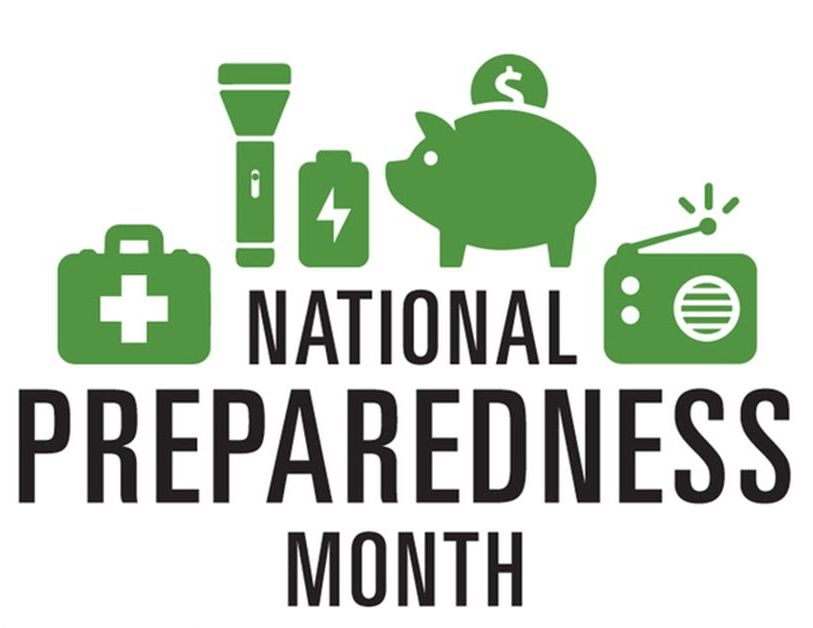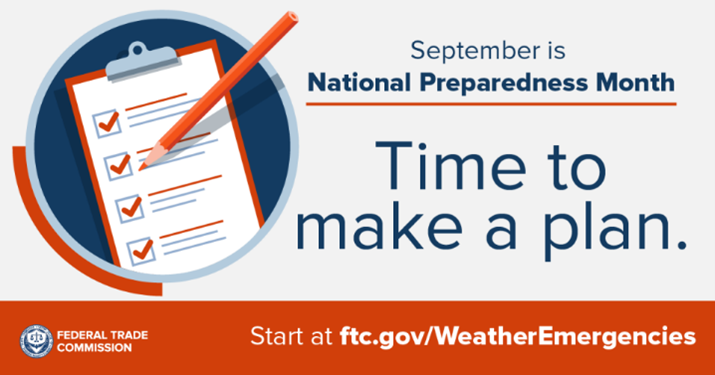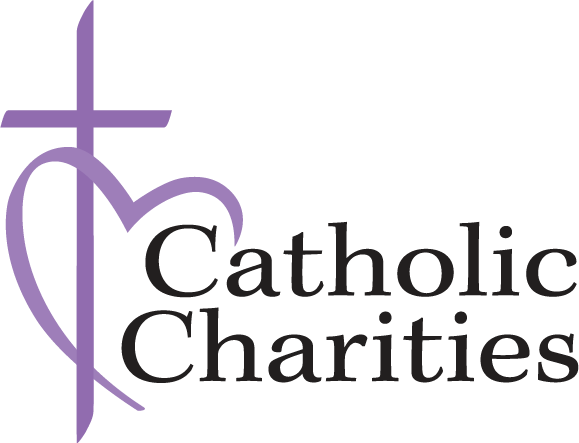National Preparedness Month

Extreme weather and natural disasters can occur with little warning. Are you ready to leave your home at a moment’s notice?
National Preparedness Month is a great time to get ready for whatever may come your way. Making a plan is the best way to protect you and your family.

Make a Plan
You can reduce your anxiety by making sure you are prepared if, and when, they happen. Here are some tips to help you get started.
- Check your insurance. Find out if any of your home, health, or other insurance policies will pay for temporary shelter, replacement clothing, furniture, or other items if you are affected by extreme weather or a disaster.
- Plan for your pets. If you’re like millions of animal owners, your pet is an important member of your household. A little planning today can help ensure safety for your pets during an emergency.
- Choose an out-of-town contact. Ask a friend or relative to be the point of contact for your family. Make sure everyone in your family has the information. After some emergencies, it can be easier to make a long-distance call than a local one.
- Sign up for alerts and warnings in your area. Public safety officials use systems to alert you and your family in the event of severe weather and disasters.
- Find out if your local public shelter is open, in case you need to evacuate your home and go there. If you need to evacuate, prepare a “go kit” with personal items you need during an emergency.
Organize Your Finances
In a disaster, financial readiness is as important as a flashlight with fully charged batteries. Leaving your home can be stressful, but knowing that your financial documents are up to date, in one place, and portable can make a big difference. If you’re missing important documents, now’s the time to replace them.
- Do a household inventory. Make a list of your possessions and document it with photos or a video. This could help if you file insurance claims.
- Take advantage of technology. Technology offers tools — like online bill-pay, virtual safe deposit boxes, and USB flash drives — for safeguarding your important documents. It also can make it easier to get to your records, and more convenient to update them.
- Buy a lockable, fireproof file box. Put important documents in it and keep it in a secure, accessible location so you can grab it and go. Include your household inventory, a list of emergency contacts, copies of current prescriptions, insurance information, and copies of other important financial and family records — or notes about where they are.
- Rent a safe deposit box. Documents to store might include: leases and ownership records; credit and loan agreements; birth certificates; Social Security cards; and military papers. For quicker access, consider placing originals in your fireproof box and copies in your safe deposit box.
- Update your information. Review the contents of your household inventory, your fireproof box, safe deposit box, and the information for your out-of-town contact at least once a year.
For more financial readiness tips, visit https://www.fema.gov/emergency-financial-first-aid-kit
Our Recent News




